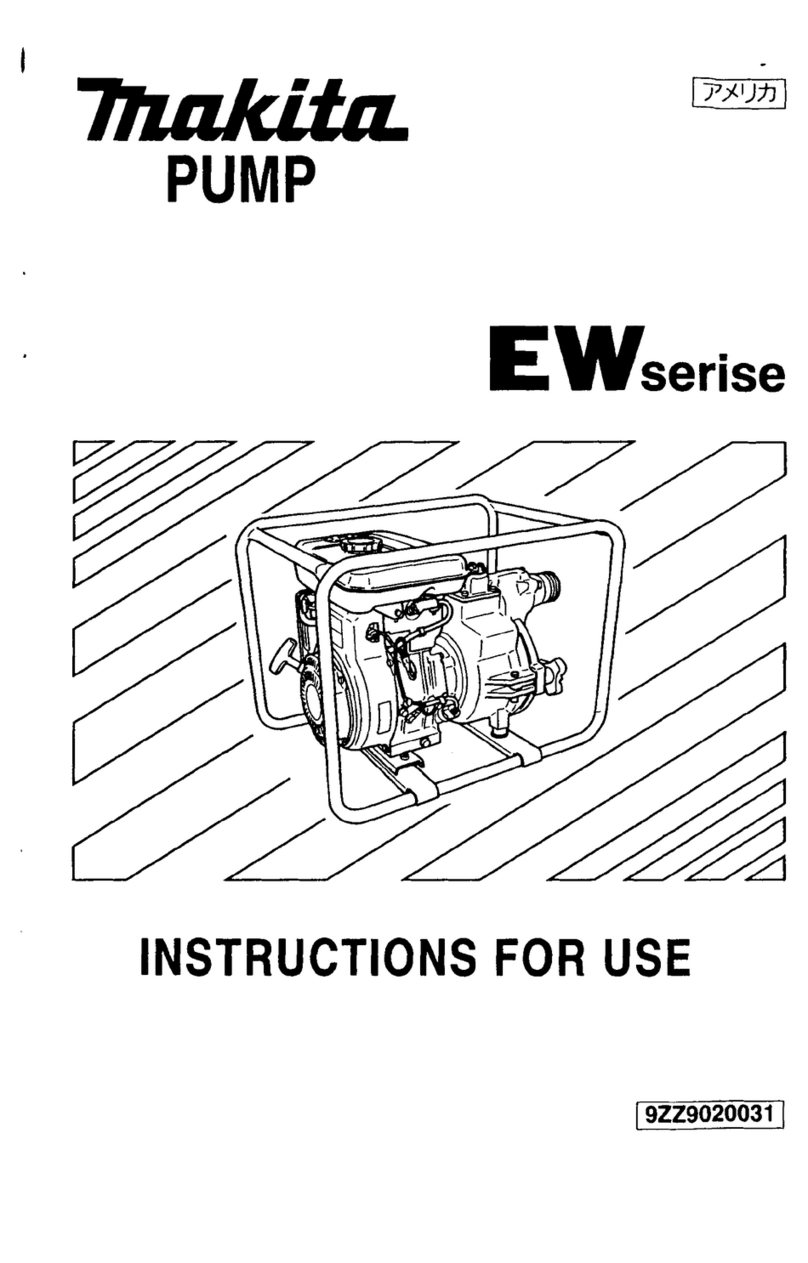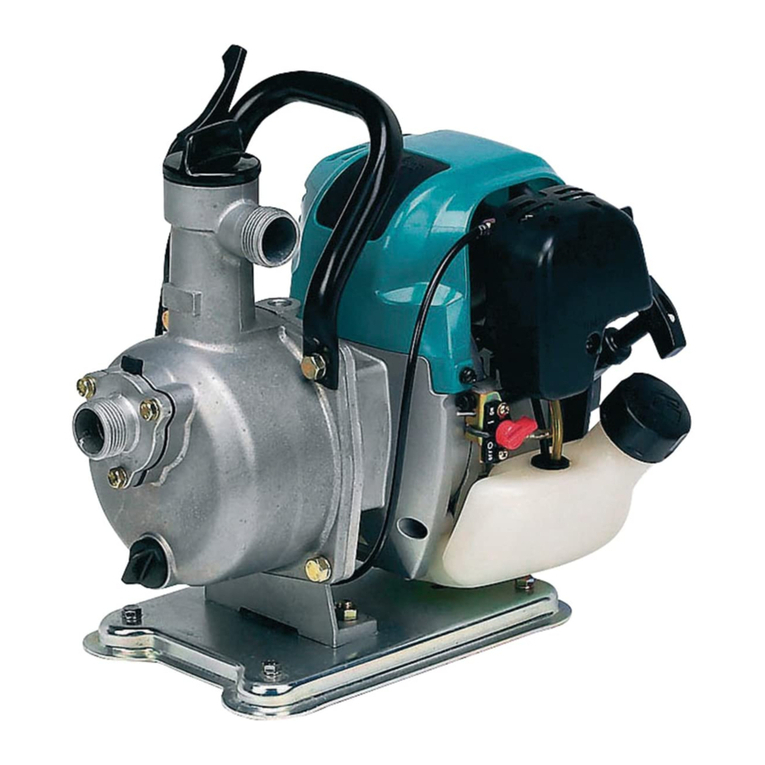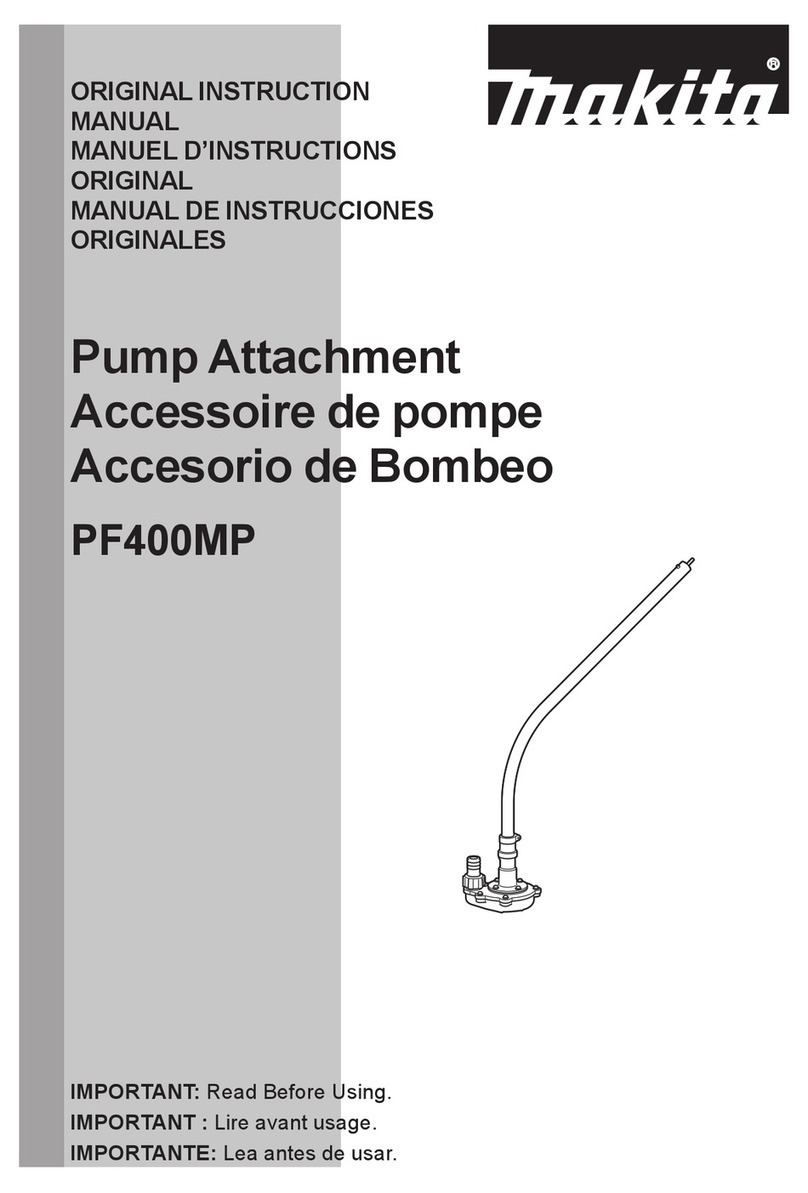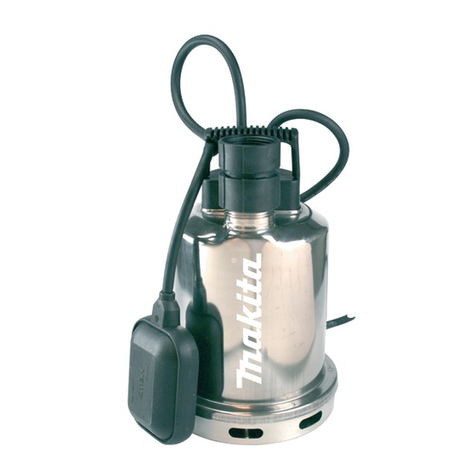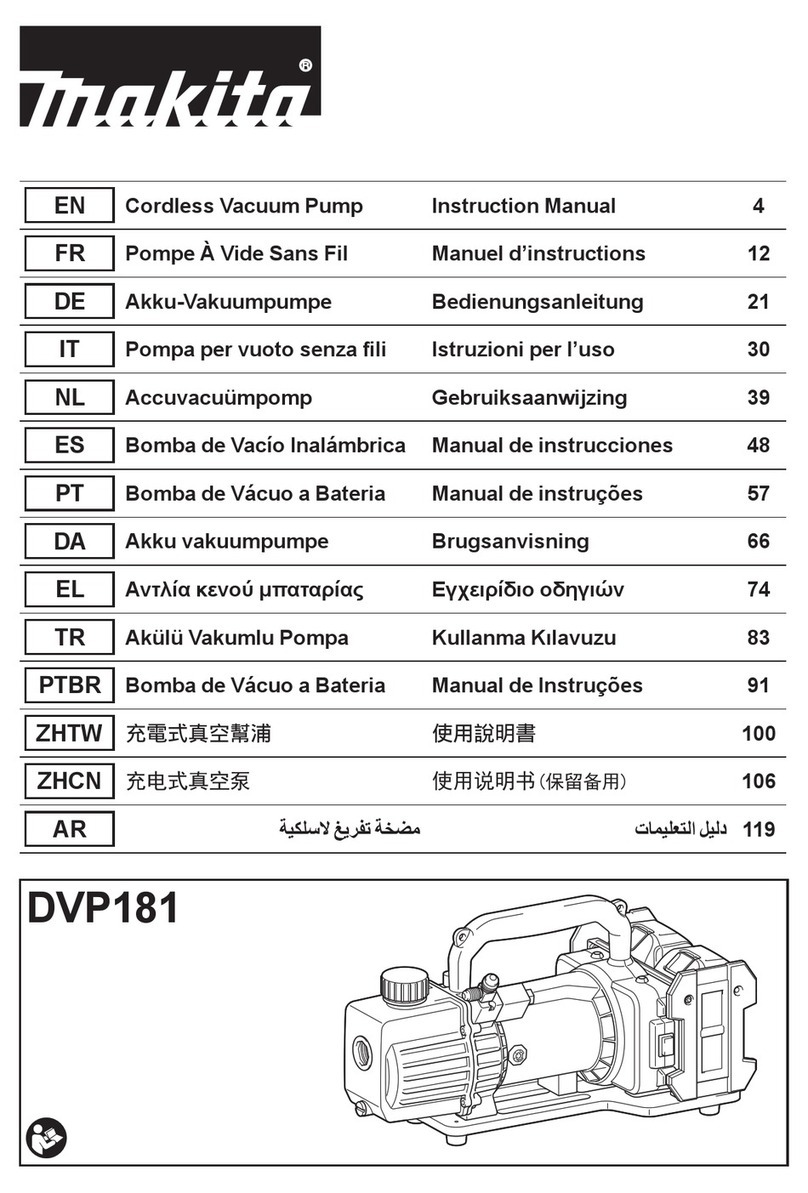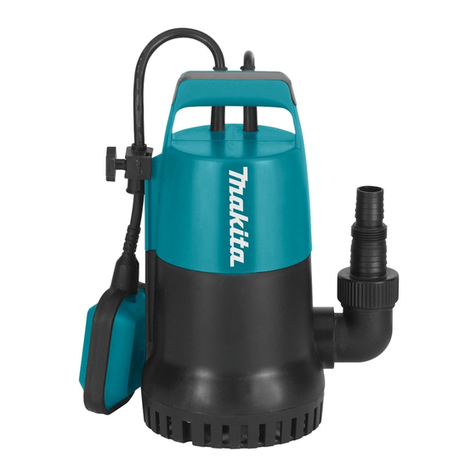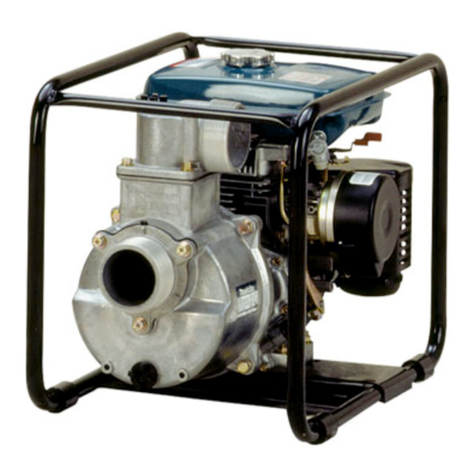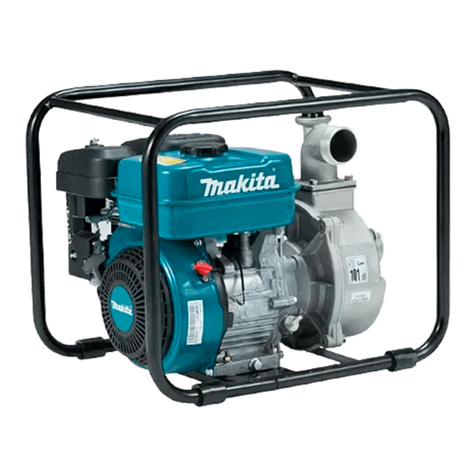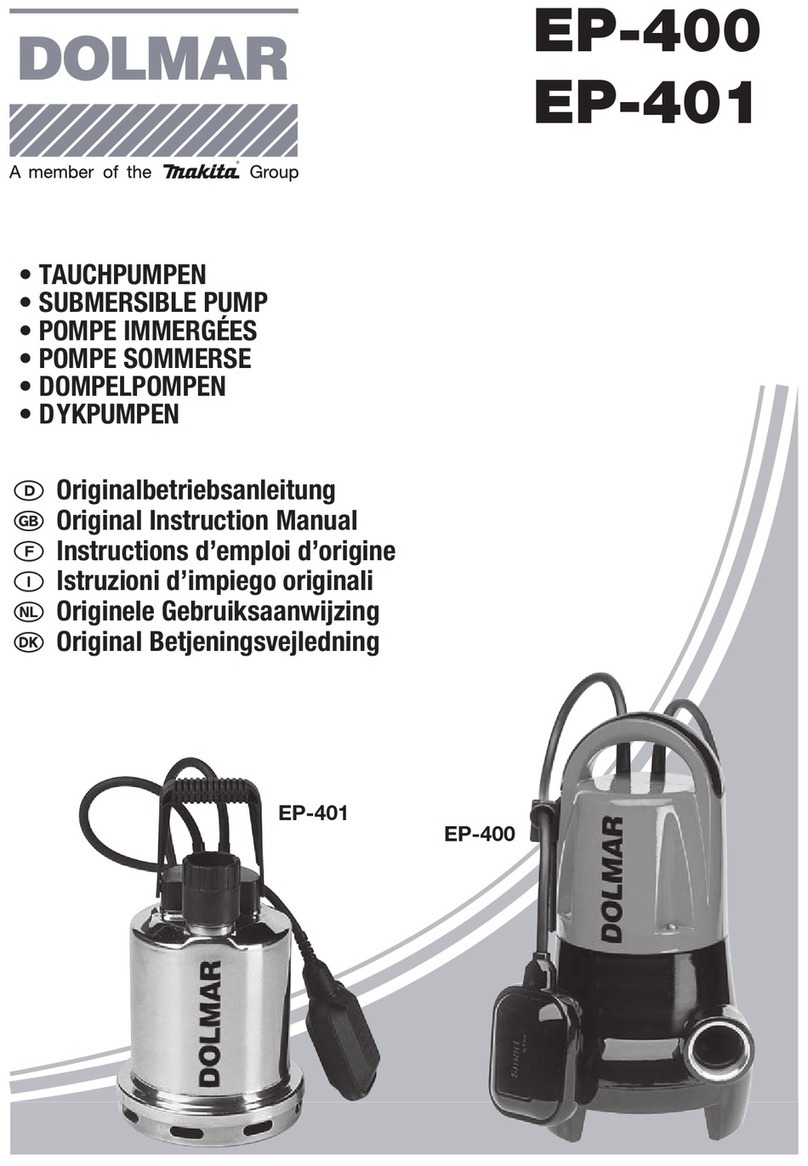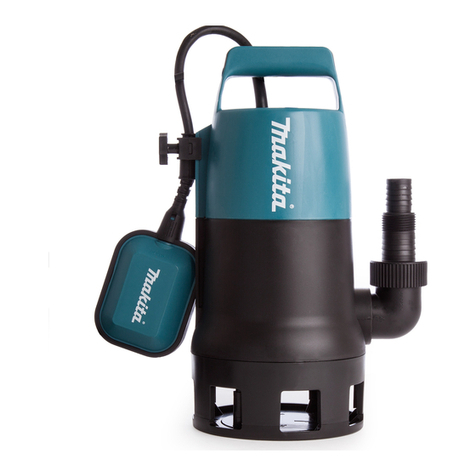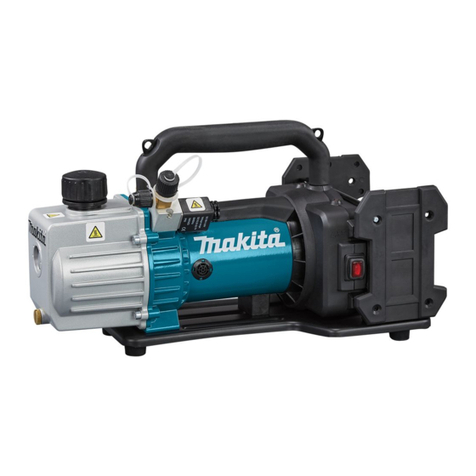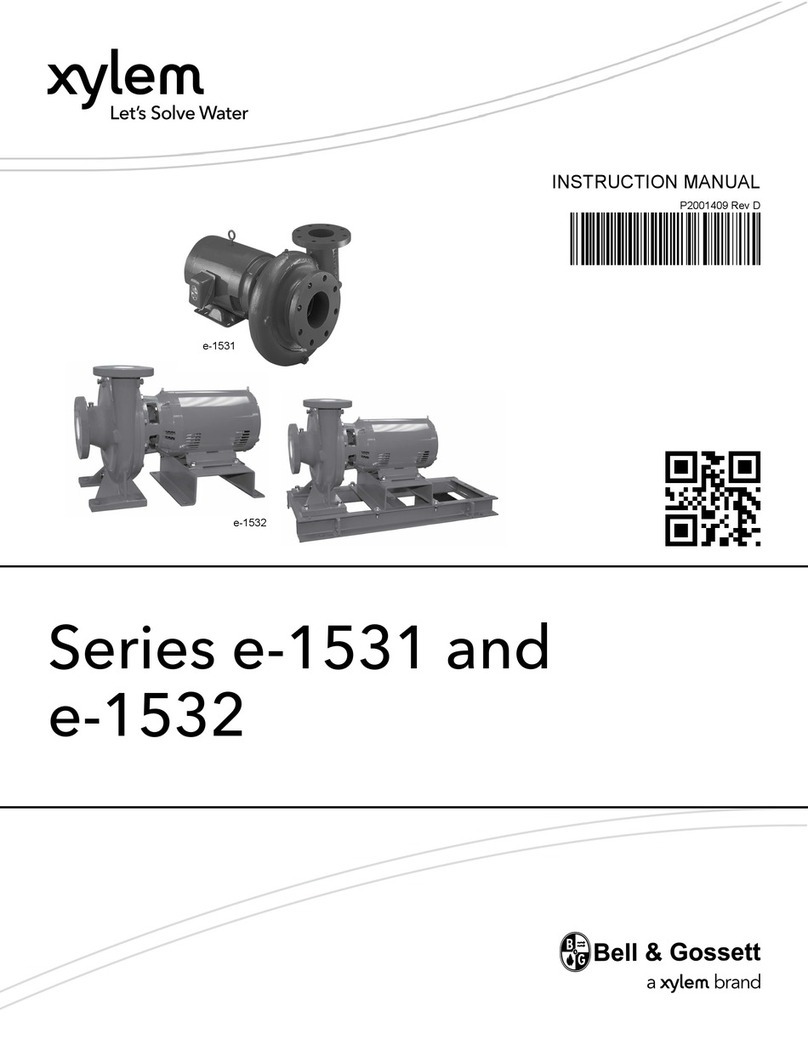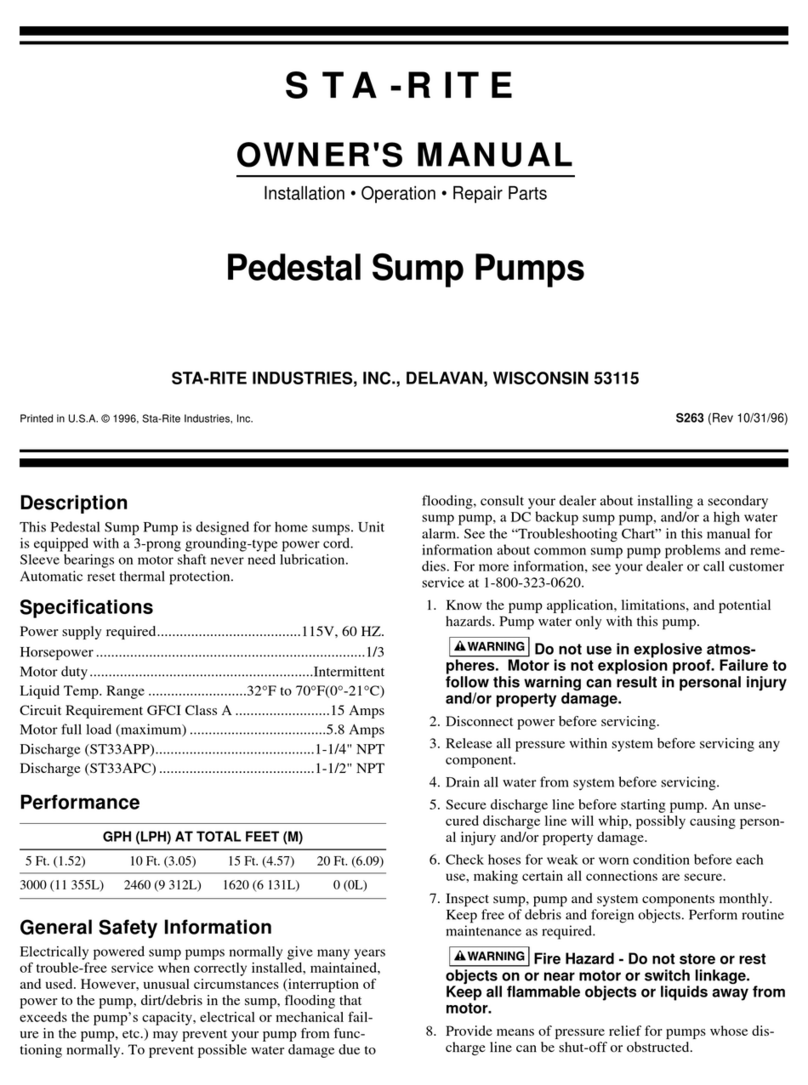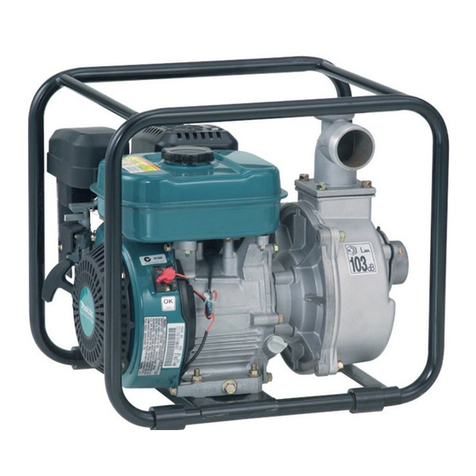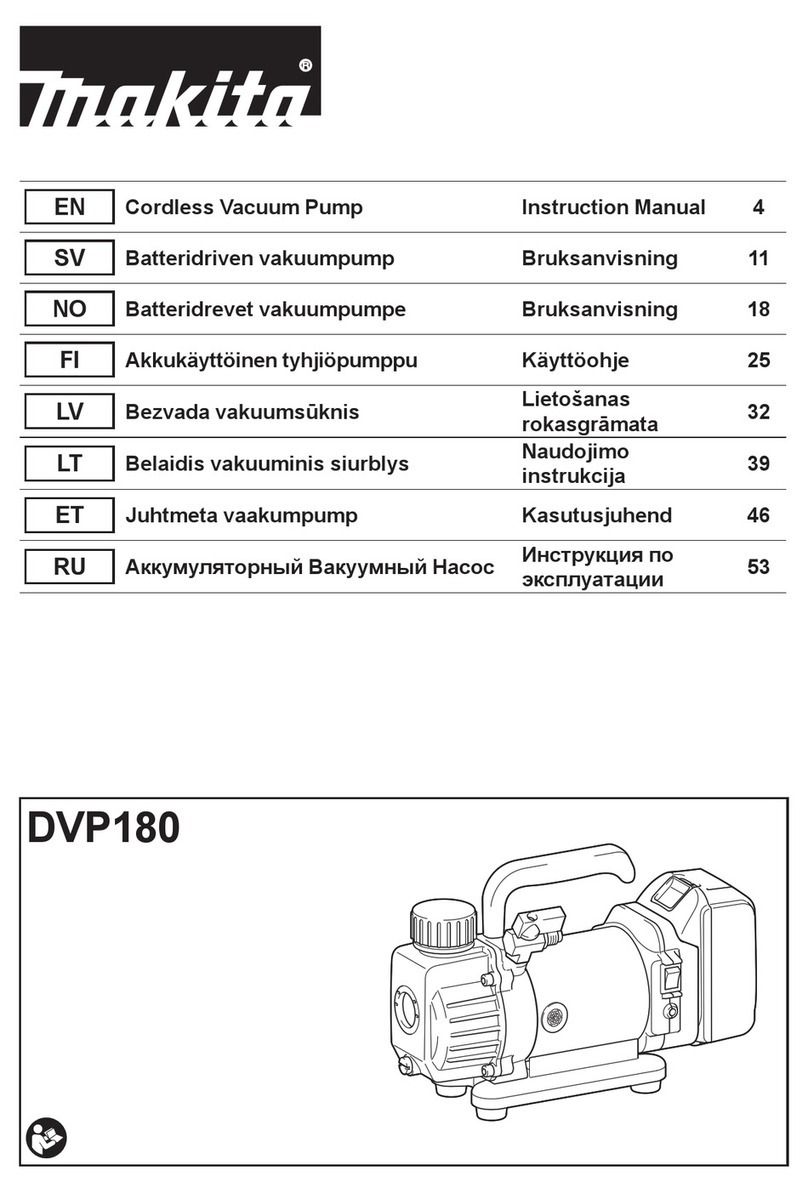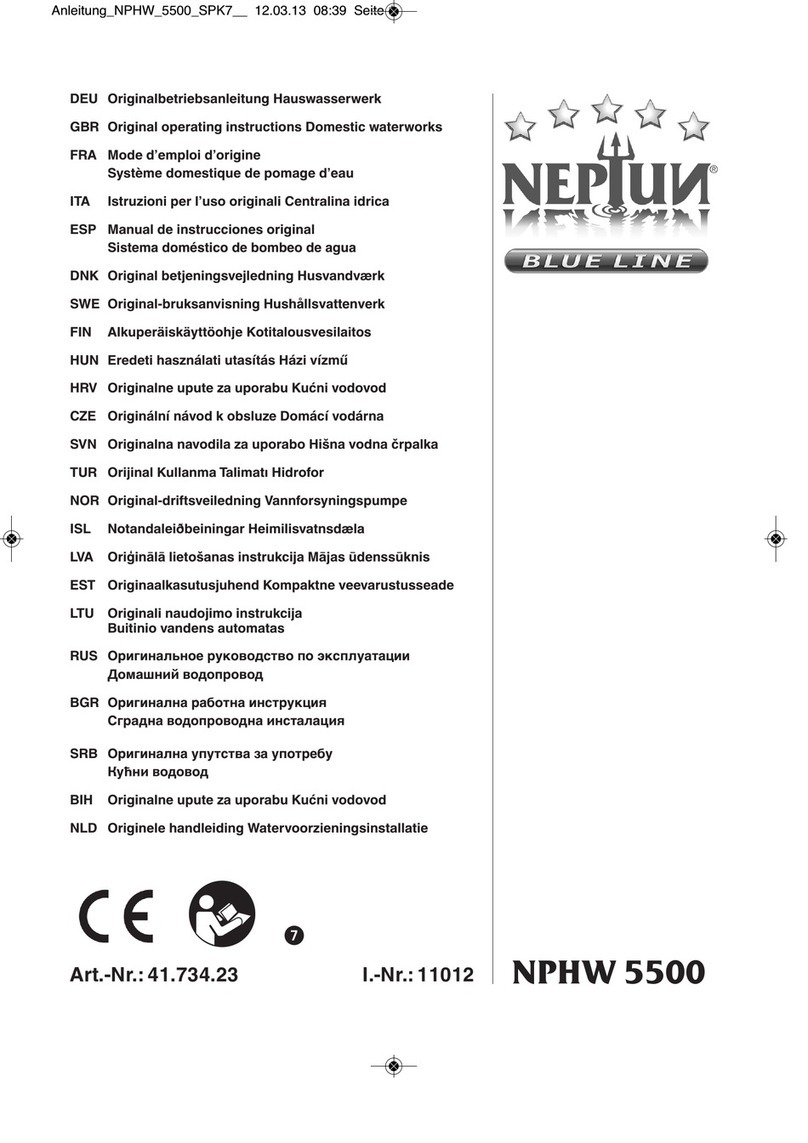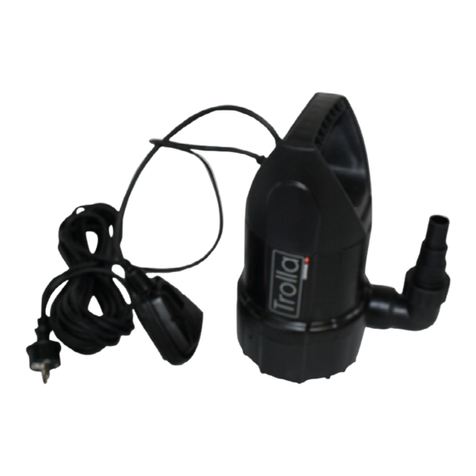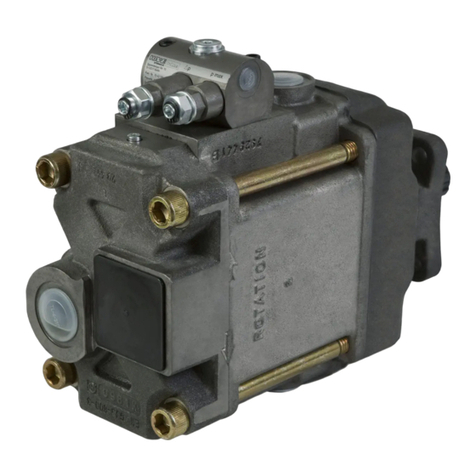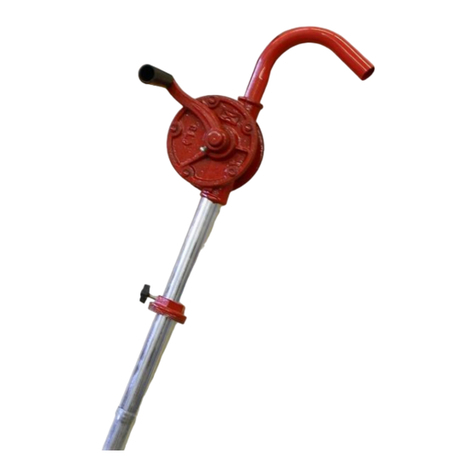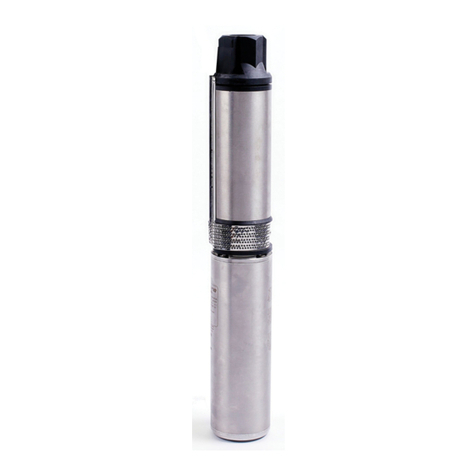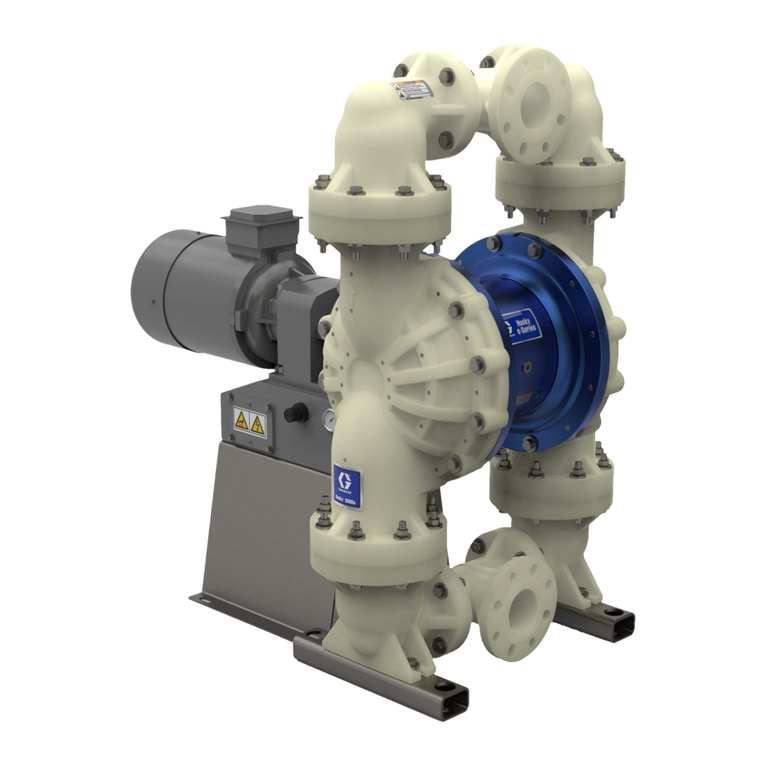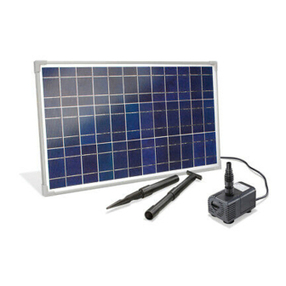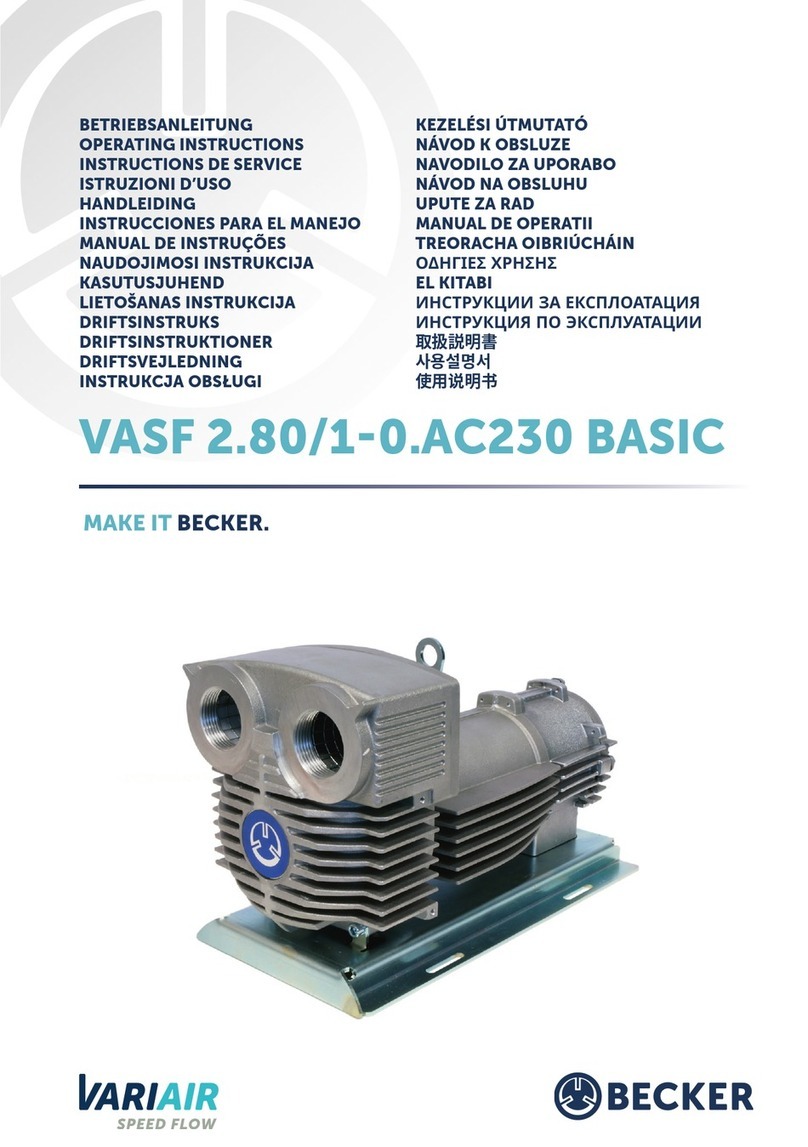
6ENGLISH
3.
Such preventive safety measures reduce the risk of
starting the power tool accidentally.
4. Store idle power tools out of the reach of children
and do not allow persons unfamiliar with the
power tool or these instructions to operate
Power tools are dangerous in the
hands of untrained users.
5.
Many accidents are caused by poorly
maintained power tools.
6. Properly
maintained cutting tools with sharp cutting edges
are less likely to bind and are easier to control.
7.
Use of the power tool
for operations different from those intended could
result in a hazardous situation.
8.
Slippery handles
and grasping surfaces do not allow for safe handling
and control of the tool in unexpected situations.
9.
The
entanglement of cloth work gloves in the moving
parts may result in personal injury.
Battery tool use and care
1.
A charger that is suitable for one
type of battery pack may create a risk of re when
used with another battery pack.
2.
Use of any other
battery packs may create a risk of injury and re.
3.
that can make a connection from one terminal
Shorting the battery terminals together
may cause burns or a re.
4.
Liquid ejected from the battery may cause irritation
or burns.
5.
Damaged or modied batteries may
exhibit unpredictable behaviour resulting in re,
explosion or risk of injury.
6.
Exposure to re or
temperature above 130 °C may cause explosion.
7.
Charging improperly or at temperatures outside
the specied range may damage the battery and
increase the risk of re.
1.
This will ensure that the safety of the power
tool is maintained.
2. Service
of battery packs should only be performed by the
manufacturer or authorized service providers.
3.
1.
Doing so may result in accidents.
2. Always inspect the power tool for oil leaks
Failure to do so may result in re.
3.
4.
WARNING: DO NOT let comfort or familiarity
strict adherence to safety rules for the subject
MISUSE or failure to follow the safety rules stated
in this instruction manual may cause serious
Important safety instructions for
1.
2.
3.
4.
5.
(1) Do not touch the terminals with any
(2)
container with other metal objects such as
(3)
